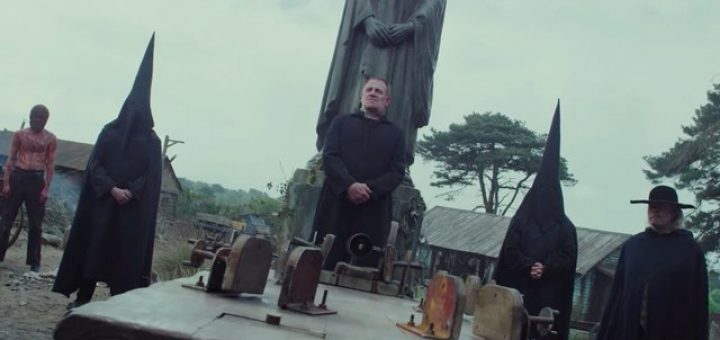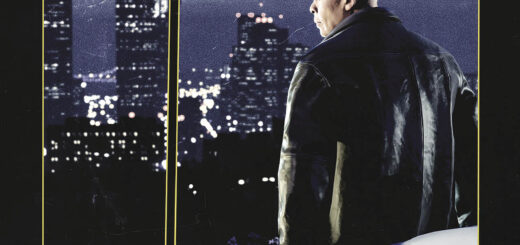Gareth Evan’s Apostle is why we need more folk-horror

By Alec Warkentin, Staff Writer
I’m probably not the first to say it, but a sizeable amount of the Netflix-distributed content that’s eeked itself out of the woodwork over the past few years — in thanks, partly, to the streaming giant’s seemingly carte-blanche approach to media production as a way of filling their site — has had a tendency to be hot garbage.
Perhaps this relates mostly to their many, many episodic series — of which the flops are evidently countless for every one that bears repeat-watching or binging — but even finding a solid film, especially fitting the horror genre, requires the viewer to wade through chest-deep muck to find a diamond in the detritus of Sandler-helmed comedies and skin-deep “young adult” social commentaries.
But, hey, maybe that’s your thing, and that’s fine too, it’s just that Apostle — the latest from The Raid director Gareth Evans — is one of those diamonds; a rare and shining example of a spooky horror film with an elaborate mythos that relies more on terror and dread than predictable jump-scares, bookended by Netflix’s The Haunting of Hill House paranormal series and mystery-thriller Hold the Dark.
Following the story of dapper-yet-troubled former missionary Thomas Richardson (played by Dan Stevens) as he infiltrates an island held by a mysterious cult during the turn-of-the-1900’s to rescue his kidnapped sister Jennifer (played by Elen Rhys), Apostle is a journey into the uncommon and under-appreciated sub-genre of folk-horror.
The island, formerly barren, now supports a small sect led magnanimous leader Malcolm Howe (played spectacularly by Michael Sheen) and cohorts Quinn (played by Mark Lewis Jones) and Frank (played by Paul Higgins), whose every basic requirement for life is met-for without need for taxes, weapons or any hierarchical government. The only cost? A jar of blood, every night, left outside their door.
Much like the puritanical backdrop of Robert Egger’s 2015 film The Witch — a fellow touchstone and recent folk-horror film that’s worth the watch — Apostle’s shanty-town aesthetic and something-wicked-this-way-comes atmosphere are really flexed and supported by the immense attention to detail and colour (or lack thereof).
Muted greys and browns make the overwhelming presence of dark red blood and gore that much more visceral and when the film’s relatively restrained (at least when compared to the more-archetypal horror) violence breaks through its stifling fugue of suspicion and mystery, it’s done so in a way that compliments the narrative (which can get rather muddied, admittedly), rather than a simple means of titillating the audience (which, well, it does).
There’s one fancy bit of camerawork in particular — I won’t explicitly state what, imploring you to watch the film for yourself — during a certain “cleansing” scene that really stands out as being a new way of putting the viewer in the hot-seat (or, more aptly, the “vice”… seriously, just go watch it).
It’s worth noting that you can generally tell the quality of a horror film by what remains if you were to take the main plot out and Apostle has that in spades. While the main drive — at least at first — is the kidnapping of Richardson’s sister, that quickly becomes a tertiary plot point when the real, much darker story begins to unfold.
Again, there’s a hesitance to to divulge more than is needed to not spoil the movie, but underneath that all-encompassing sense of dread (and told sparingly through minor flashbacks) is an extended mythos that gets a little LOST-y (even more so when looking at the comparisons between the two narratives: islands, survivors making do, a darkness lingering in the trees).
On the whole, though, the folksy setting of Apostle is an area ripe for horror-fying and more films should be made that look at the world before it was modernized. What a wild time the world was before technology — people spouting crazy beliefs, joining more-than-slightly-dubious cults and groups, committing atrocities for a divine being or attempting to appease to some force they’ll believe will make the world better, blood running through the streets as people grasp for power while living in straw houses and not trusting neighbours or friends. Good thing it’s not like that anymore. Wild, ill-informed antics are a thing of the past. Yep. Oh, also, there’s a character called “The Grinder.” Go watch the movie.




